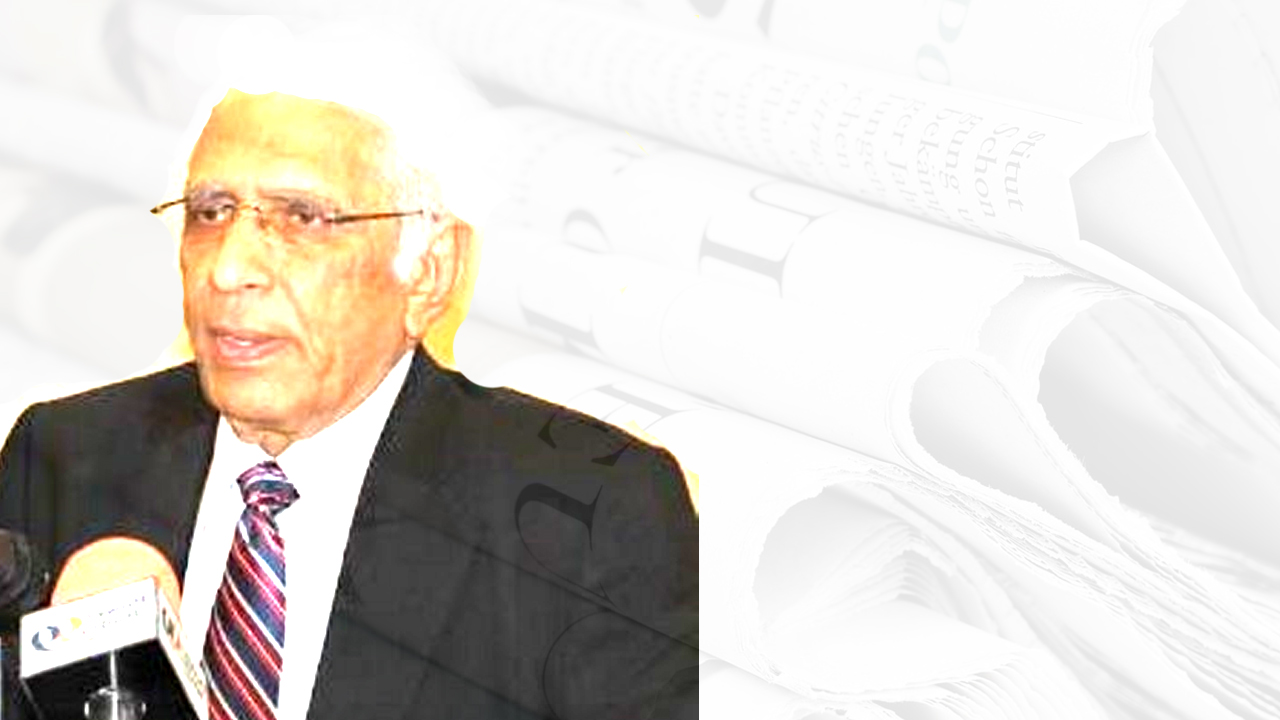It was purely a slapstick comedy that the PTI-led coalition government’s legal team had enacted in August 2019 while attempting to extend the services of COAS General Qamar Javed Bajwa for three more years. It was touch and go, indeed. Had the other party not shown extreme composure, the one-page mantra would have gotten torn to pieces very early in the day. And now the nearly three-week long foot dragging being enacted in full public view by Prime Minister Imran Khan on the matter of issuing a notification appointing the successor of ISI Chief Lt. General Faiz Hamid seems to have all but sent the country on a journey into the unknown. The PTI government, nonetheless, issued the notification of new DG ISI on Oct 26 and Lt-Gen. Nadeem Anjum will assume the charge of his new responsibility from Nov 20, 2021.
Most of the seeming political blunders committed by the PTI-led coalition government over the last three years or so could be attributed to the lack of experience of running a government on the part of ruling Party which has never seen or worked our bureaucratic system from inside.
Even more so, if the party is headed by someone who has never walked the labyrinth that is called the Government.
Politicians come and go but bureaucracy constitutes the permanent government that then makes up the system. Only those politicians who have worked this system for some time do know how to handle the permanent government that is how to make it work in accordance with the elected government’s political agenda. This bureaucracy is very good at making rings around novices. That is perhaps what has actually happened.
The PTI, a youthful political party led by a globally known Mr. Clean with Greek features, having proven his mettle in the world of sports. Builder of a world class cancer hospital and an equally world class educational institution. A great communicator. Darling of the media and seemingly endowed with an ideology anchored in the principles of justice and fair play.
But surprisingly, it seems as if the government of Prime Minister Imran Khan has already tumbled into the fifth year of its first term in office. And more surprisingly, this is happening to a political party which came to power with the civil-military establishment rolling out the red carpet all the way en route to power.
Indeed, even before the government completed the first 100 days in the saddle the PM was seen sleep-walking into the lobbies of national and international vested interests as he handed over party affairs to the second-tier leadership without having got it first to gel. The party immediately fell victim to infighting. And the government, he handed over to non-party technocrats selected by non-political agencies with their own narrow agenda in mind.
Indeed, rather than focusing on governance, PM Imran Khan seems to have turned into a vigilante force of moralizers. While the Khan-led moralizers seem to be trying to inflate their own social and moral standing in the public eye by daily flaunting their moral virtues, they also seem to take carnal pleasure in the public humiliation of their ‘corrupt’ victims. Reminders are voiced almost round the clock by party spokespersons promoting Khan as being the cleanest of the clean Pakistanis.
That such moralizers as a rule suffer from strong doses of hypocrisy, sanctimoniousness, pomposity, pretension and conformism is not an exaggerated notion. That is why we see frenzied media trials of the ‘corrupt’ and the NAB persecuting rather than prosecuting. NAB’s problem since its launch has been its very weak prosecution wing. And what it receives as evidence from investigation agencies is normally too flimsy because of corruption and inefficiency within the investigation agencies themselves. And there are these officially appointed commissions to ‘forensically’ investigate current corruption cases like the one appointed to investigate the sugar scandal which named and shamed some even belonging to the ruling parties. These reports are being flaunted as evidence that Khan has no friends when it comes to fighting corruption.
Yes, of course, one must be extremely wary of those who persecute in the name of principle. But then one cannot condone corruption while criticizing vigilante moralizers. Khan and his party have all the right to investigate and prosecute the corrupt. But laws of the land alone do not have the ability to curb corruption. However, many civilized countries have succeeded in curbing corruption, if not eliminating it completely, by establishing a strong parliament, an independent judiciary and a fearless media. Without these social controls no amount of laws and moralizing can curb corruption.
And of course you don’t replace your finance ministers at the drop of a hat, and that too at junctures you are least expected to be taking such a decision. Nobody in his/her remotest imagination had anticipated a change of guard at the ‘Q’ block right when PTI’s first finance minister Asad Umar had just returned home from Washington after having negotiated a three-year
$6 billion Extended Fund Facility with the IMF. But that is exactly what had happened when Dr Hafeez Shaikh, former finance minister in the Zardari government was brought in to replace PTI’s poster boy. And then with another annual budget only a few weeks away the government, in what appeared to be a surprise move, replaced Dr Shaikh with, of all people, another former finance minister of the Zardari government, Shaukat Tarin, and that too seemingly without any sound political or economic rhyme or reason.
But neither of the two Zardari finance ministers is an economic wizard to merit being sought after seemingly so earnestly by Khan’s government. The performance of the two as finance ministers in president Zardari’s government had remained largely mediocre. Both had failed to navigate the economic ship of the Zardari government out of troubled waters. One had no illusions about Dr Shaikh’s performance over the last two years. Tarin’s performance is not likely to be any different.
Media being a public service industry and truth being its main output — while it is constantly tested for quality at the bar of its credibility and integrity — needs all the freedom required to make the commodity available to the general public without fear or favor.
Given the peculiar socio-cultural, politico-economic and security conditions of a society in which the media industry
functions, and also given the dynamism of each of these conditions that continuously keep pushing the boundary lines, the industry cannot be forced to abide by a straightjacketed code of ethics. In plain words, what is taboo for media today could be kosher tomorrow.
The best course therefore is to leave it to the media industry to keep evolving a code of ethics of its own, dictated continuously by the constant changes occurring in the code of ethics governing a society. And since its quality is tested at the bar of its integrity and credibility, media organizations worth their name, in their own self-interest, would try not to digress or transgress from their main public service role of seeking the truth, and nothing but the truth.
And in case of any serious digression or transgression, the industry could be subjected to the existing laws of the land. There is no need for introducing special laws to discipline the media.
In a free market economy to keep the profit motive of the private sector within the bounds of reason, each industrial sector is regulated by a specific autonomous regulatory body set up under laws legislated by parliament. The private sector media industry too needs to be regulated by such a body.
Therefore, to make them truly autonomous regulatory authorities, a bipartisan parliamentary committee could constitute an executive board (EB) comprising members representing all walks of life. The EB could appoint a CEO on pure merit with the latter answerable to the EB who in turn will be answerable to the bipartisan parliamentary committee which would answer to parliament.










